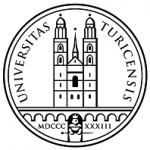项目介绍
Please ensure you check the Department of Clinical Neurosciences website for up-to-date information on projects and funding.
Postgraduate training is very different from undergraduate courses. It is based on individual needs and abilities, and is designed to help you to think clearly, originally and practically, and to prepare you for leadership in science. We teach our postgraduate students how to plan and carry out cutting-edge research. Cambridge is an amazing place to learn how to do research. Visiting speakers and collaborators come from all over the world, and there are simply too many seminars for one person to attend! We have a careful system of monitoring the individual progress of each student; everyone has both a principal supervisor and associated adviser, and there are weekly student-led seminars.
Research training within the Department has several essential components, the first and foremost being the research project itself, to which you will make a significant contribution. This will give you experience and training in a variety of experimental and/or clinical research techniques, but will also teach you how to organise research, plan experiments, and read and digest the scientific literature relevant to your research work. Most research groups have weekly or fortnightly meetings in which all members discuss each other’s work.
However, other skills are also important. You will be required to attend seminars and round-tables, and you will have the opportunity to go to scientific meetings both in the UK and abroad. These bring you into direct contact with prominent and active scientists in your field from around the world.
You will also give scientific talks yourself. Audiences for such talks are often quite large, and the discussion of your paper is often very lively. You will also be expected to attend courses, either directly related to your research (for example, they might teach you a specific skill or expand your theoretical knowledge) or teach you general skills which are important for a well-qualified scientist to know (for example, how to write a scientific paper, use databases, or interact with the media). There are a large number of these courses, and many of them are run by the Graduate School of Life Sciences. The Department also has its own series of seminars.
We expect our postgraduate students to publish in high-quality journals, and nearly all of them do so.
录取要求
-
Applicants for this course should have achieved a UK II.i Honours Degree.
联系方式
电话: +44 (0)1223 337733相关项目推荐
KD博士实时收录全球顶尖院校的博士项目,总有一个项目等着你!






